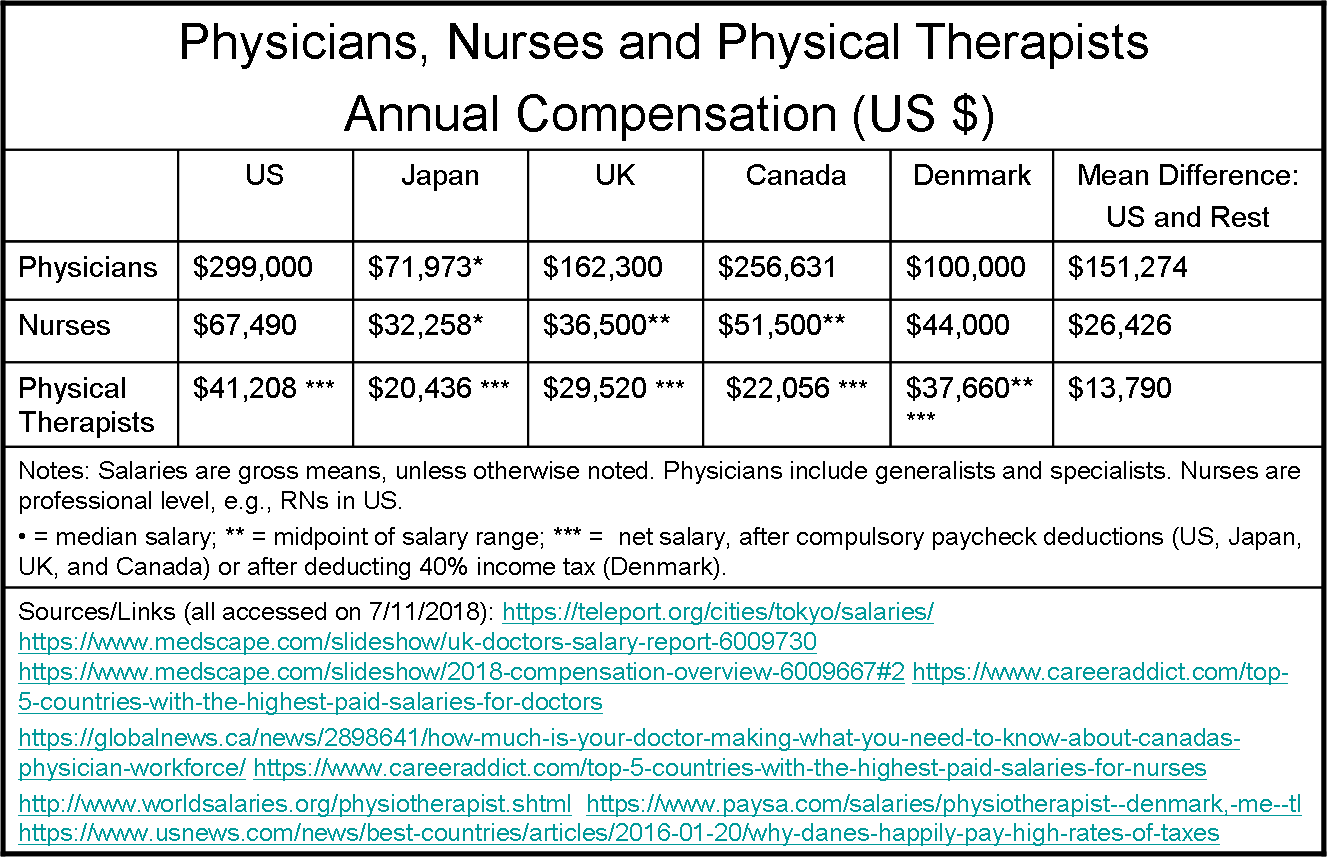The Goal: cut the cost of US healthcare in half while achieving universal coverage and excellent quality of care without the heavy hand of big-time taxes, regulations, and bureaucracy. Hah! Yeah, I know. But gotta try.
The Situation: As a percentage of GDP, the US spends about twice as much on healthcare as other developed countries. This is a problem. See Part I of this series for details. For those who say healthcare is not a basic right, that means some people should be denied treatment, even if they die as a result. That’s fine. This post is not for you.
Healthcare is not uniformly more expensive in the US than in other developed countries - it depends on the spending category. There are types of spending where we lead the pack, and these are the problem areas I want to focus on. The problem areas are outpatient services, pharmaceuticals, and administration. Outpatient services and administration alone account for half of US healthcare spending, or about $4700 a year per capita (about $1680 more per capita than what other developed countries spend, on average).
The cost of pharmaceuticals turns out to be less a problem than I originally thought. Although the US spends, annually and on average, about $700 more per capita on pharmaceuticals than other developed countries, our extra spending partly subsidizes cheaper drugs in those countries - if we paid less, they'd pay more. Our higher drug costs also fund pharmaceutical R&D in the US, which dominates the world market in new drugs. So how much could we reduce spending without harming the pharma engine of innovation? Not enough to make much of a dent in US healthcare spending. See Post III in this series for more details.
So I'm going to narrow the focus to why outpatient services and healthcare administration are so expensive in the US. Physician pay and incentives are a huge factor in the high cost of outpatient services. I'm not talking just physician fees and salaries but the effect of profit-sharing arrangements on patient services provided by the whole healthcare team. Doctors typically get a cut of the profits and that provides incentives for expensive care and/or high premiums (e.g., in the case of HMOs). Add in the relative ease of gaming the billing system, and you've got a recipe for out-of-control healthcare spending. It doesn't matter if the medical bills are paid by Medicare or private insurers. If the system of payment can be gamed, it will be gamed.
I'll close this post with a nice little table:
Food for thought: US physicians are paid way more than physicians in other countries and so are other US healthcare professionals. It all adds up.
Next: Slouching towards the high cost of healthcare administration in the US - why and hints of what can be done about it.
Reference:
Papanicolas I, Woskie LR, Jha AK. Health Care Spending in the United States and Other High-Income Countries. JAMA. 2018;319(10):1024–1039. doi:10.1001/jama.2018.1150
